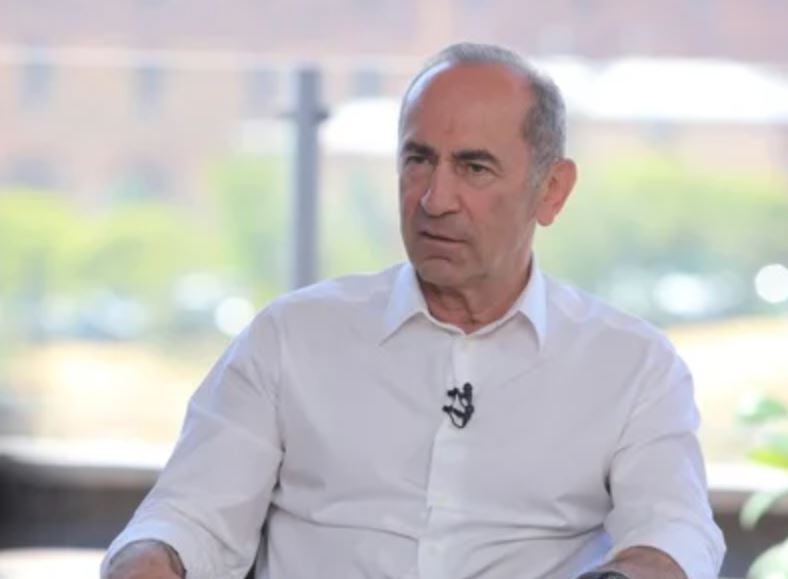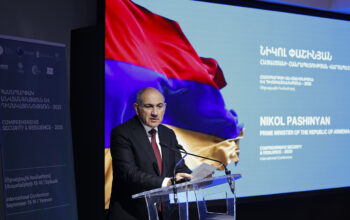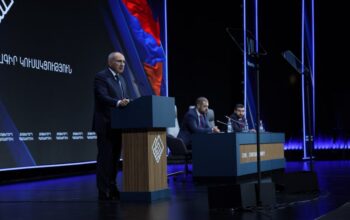By Levon Baronian
Since his return to political life following the 2018 Velvet Revolution, Armenia’s second President Robert Kocharyan has remained a subject of controversy, admiration, and persistent public scrutiny. Among the most enduring accusations against him, which are often repeated by the current government’s supporters, is that he and his family accumulated personal wealth through corrupt means during and after his presidency. These claims, though politically effective in mobilizing certain segments of the public, fail to hold up under closer scrutiny. Despite nearly two decades of investigative effort, no court in Armenia has convicted Kocharyan of embezzlement or illicit enrichment. The persistence of these allegations, absent legal validation, raises important questions about the use of corruption narratives in post-revolutionary Armenia and the nature of political accountability in transitional states.
The Legal Record: A Decade of Investigation Without Conviction
Robert Kocharyan served as Armenia’s president from 1998 to 2008. During this period, and especially following his reemergence as a political figure in 2018, state authorities and political opponents have frequently accused him of amassing wealth through misuse of office. These allegations intensified under Prime Minister Nikol Pashinyan’s administration, which came to power on an anti-corruption platform and pledged to root out what it called the “oligarchic system” of the past.
Yet, despite full control of Armenia’s law enforcement and judicial apparatus since 2018, Pashinyan’s government has not successfully prosecuted Kocharyan on any corruption-related charge. The most high-profile case, the so-called “Mayrapetyan case,” in which Kocharyan was accused of accepting a bribe from Armenian businessman Samvel Mayrapetyan, ultimately collapsed in court. According to the official record, the charges were dismissed due to procedural violations and lack of admissible evidence. Kocharyan’s legal team and independent observers have described the case as politically motivated and legally flimsy.
Furthermore, ongoing efforts by the Armenian Prosecutor’s Office to seize assets allegedly linked to Kocharyan’s family remain in the civil court domain, not the criminal one. Under Armenia’s controversial 2020 “civil forfeiture” law, prosecutors may initiate proceedings to confiscate property suspected of being acquired through unlawful means without the need for a criminal conviction. While this mechanism may serve to increase accountability in theory, in practice it is vulnerable to political abuse, particularly when used selectively against opposition figures.
As of this writing, despite unprecedented scrutiyn, Kocharyan has not been convicted of embezzlement, bribery, or abuse of office. In any serious legal system, the presumption of innocence stands until proven otherwise. The absence of conviction after extensive investigation is not evidence of impunity; it is evidence of unproven claims.
The Broader Context: Wealth, Power, and Post-Soviet Capitalism
Kocharyan’s critics often cite his family’s business holdings as proof of corruption. His son, Sedrak Kocharyan, is a shareholder in several enterprises, including the upscale “Konstantin” hotel in Yerevan. It is true that during and after his presidency, members of Kocharyan’s family entered the private sector and acquired assets. Yet the same is true for nearly every prominent family in Armenia’s political and business elite, including many tied to the current administration.
Indeed, Armenia’s post-Soviet transformation from a planned to a market economy produced a class of politically connected businessmen across the spectrum. This was neither unique to Kocharyan nor to Armenia; it was part of a regional pattern seen across Eastern Europe and the former Soviet Union. The question is not whether wealth was acquired, but whether it was done illegally.
There has been no international reporting, such as the Panama Papers, Pandora Papers, or OCCRP exposés, linking the Kocharyan family to illicit offshore accounts, money laundering, or hidden foreign assets. Their business interests are registered, visible, and publicly known. They stand in stark contrast to the opaque structures sometimes used by elites in other transitional democracies to shield wealth from scrutiny.
By contrast, figures within the current administration have faced growing questions of their own. For example, Hetq.am recently reported that a road construction company run by the brother of Parliament Speaker Alen Simonyan secured over $1.4 million in government contracts within a single year, despite being a previously unknown firm founded with just $100 in capital. Transparency International Armenia and other watchdogs have raised red flags, warning of possible conflicts of interest and calling for an audit of procurement practices. Simonyan has refused to comment.
These cases do not prove systemic corruption, but they illustrate a key point: the anti-corruption rhetoric that brought Pashinyan’s team to power is now being undermined by their own practices. The failure to apply the same standards of scrutiny to those in power today weakens the moral authority of accusations against figures like Kocharyan.
The Weaponization of Guilt by Association
Another tactic used by critics is to paint Kocharyan’s political comeback as a veiled attempt by “the old guard” to reclaim power. This argument appeals to public memory of a time when economic inequality and monopolies were common. But it simplifies a complex history and unfairly casts any figure from the pre-2018 era as inherently corrupt or illegitimate.
It is worth noting that Robert Kocharyan did not flee the country, did not seek asylum abroad, and did not use political immunity to shield himself from the law. He remained in Armenia, faced arrest and trial, and continued to participate in public life. This conduct differs markedly from the behavior of many political figures who fear accountability.
In democratic societies, wealth is not a crime when lawfully earned. Nor is it disqualifying. What matters is transparency, legal due process, and the public interest. The consistent failure of prosecutors to convict Kocharyan on corruption charges, despite immense pressure and motivation to do so, should raise serious questions about the validity of the narrative.
Conclusion: From Myth to Accountability
In the absence of evidence, accusations become myths and tools of political warfare rather than instruments of justice. The claim that Robert Kocharyan and his family “stole from the people” may still resonate among segments of the population, but repetition does not equal truth.
If Armenia is to move forward as a democratic state, it must uphold consistent standards of evidence, legality, and fairness. Selective prosecution, trial by media, and narrative-driven accusations undermine the credibility of state institutions. At a time when the country faces existential threats, from borders to sovereignty, Armenia needs serious, experienced, and law-abiding leaders. Robert Kocharyan’s critics are free to challenge his politics. But unless and until they can prove their accusations in a court of law, they should refrain from reducing political discourse to slogans.
Armenia deserves better than rule by rumor. It deserves leadership by fact, experience, and accountability.
Sources
- Kocharian’s Corruption Trial Ends Without Verdict – Azatutyun.am
- Statement on the International Antiсorruption Day – Transparency International Armenia
- Hetq Investigation Reveals Conflict of Interest in Road Contracts – Hetq.am
- Armenian Authorities Move To Oust Kocharian Trial Judge – Azatutyun.am
- Kocharian Trial Judge Admits Past Links To Pashinian’s Party – Azatutyun.am
- Armenian Prosecutor’s Office Annual Asset Forfeiture Report, 2024 – Prosecutor.am




